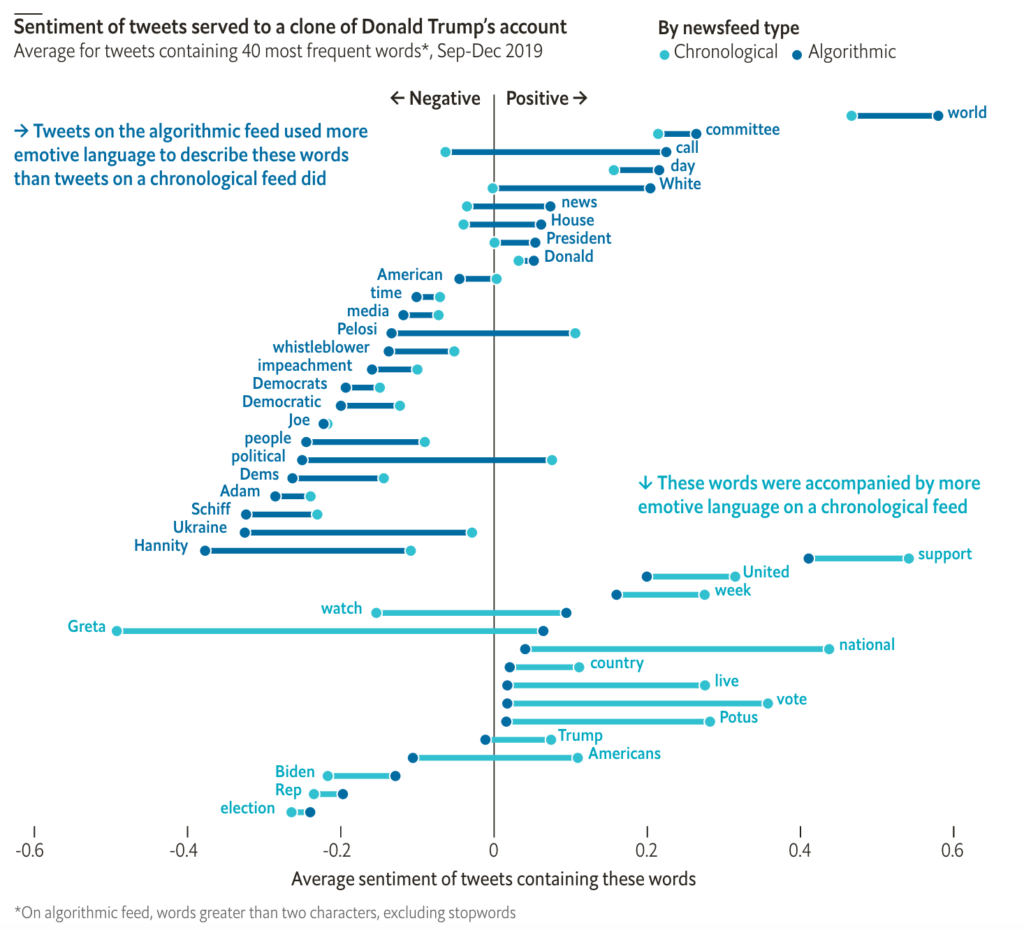Quote of the Day
“Ireland is not a romantic dream; it is not a flag; it is 4.5 million people divided into two powerful traditions. The solution will be found not on the basis of victory for either, but on the basis of agreement and a partnership between both. The real division of Ireland is not a line drawn on the map, but in the minds and hearts of its people.”
- John Hume, RIP
Today’s musical alternative to the morning news
John Field – Nocturne No. 5 in B flat major, played by Stephen Leaney
Why there won’t be an ‘election night’ on November 3rd
Worrying (and not implausible) scenario in “How the Media Could Get the Election Story Wrong”
We may not know the results for days, and maybe weeks. And a lot could go wrong in the interval. So it’s time to rethink “election night”.
This might be alarmist, but it isn’t fantasy. Even the Facebook boss has woken up to it.
Facebook’s chief executive, Mark Zuckerberg, told me in a brief interview on Saturday that he’s planning to brace his audience for the postelection period. He said the site planned a round of education aimed at “getting people ready for the fact that there’s a high likelihood that it takes days or weeks to count this — and there’s nothing wrong or illegitimate about that.” And he said that Facebook is considering new rules regarding premature claims of victory or other statements about the results. He added that the company’s election center will rely on wire services for definitive results.
It’s possible, of course, that Joe Biden will win by a margin so large that Florida will be called for him early. Barring that, it’s tempting to say responsible voices should keep their mouths shut and switch over for a few days to Floor Is Lava, and give the nice local volunteers time to count the votes. That, however, would just cede the conversation to the least responsible, and conspiratorial, voices.
Yep. This won’t be over until January 20 2021, when Trump is finally ejected from the White House.
Interestingly, a group of former top government officials called the Transition Integrity Project have been gaming four possible scenarios, including one that doesn’t look that different from 2016: a big popular win for Mr. Biden, and a narrow electoral defeat, presumably reached after weeks of counting the votes in Pennsylvania.
For their war game, they cast John Podesta, who was Hillary Clinton’s campaign chairman, in the role of Mr. Biden. They expected him, when the votes came in, to concede, just as Mrs. Clinton had.
But Mr. Podesta, playing Mr. Biden, shocked the organizers by saying he felt his party wouldn’t let him concede. Alleging voter suppression, he persuaded the governors of Wisconsin and Michigan to send pro-Biden electors to the Electoral College.
In that scenario, California, Oregon, and Washington then threatened to secede from the United States if Mr. Trump took office as planned. The House named Mr. Biden president; the Senate and White House stuck with Mr. Trump. At that point in the scenario, the nation stopped looking to the media for cues, and waited to see what the military would do.
Which brings us — yet again — to Ben Franklin’s reply to the woman who asked him — as he emerged from the final deliberations of the Constitutional Convention in 1787 — “well, doctor, what have we got, a republic or a monarchy?” “A republic”, said Franklin, “if you can keep it.”
We’ll see if they can.
Remembering John Hume

He was the greatest Irishman of our times. Tommie Gorman, RTE’s Northern Editor, knew Hume well and has written a lovely tribute to him.
Strasbourg was also the city where I saw him in his most sociable mode. He had a favourite restaurant, Maison Des Tanneurs, a family-run business at 42, Rue du Bain aux Plante. Religiously Hume would invite the quota of visiting journalists from Dublin, the Brussels-based Irish crew and any other waifs and stragglers to a meal.
He’d tell his party-piece joke about Mickey Doherty from Derry, he would insist on his visitors having Dame Blanche for desert, he would order more bottles of gewürztraminer and he would pay the bill. Before the fun broke up in the small hours, he would insist on singing ‘The Town I Love So Well’ in the nearby bar, The Aviator.
Hume had a real, steely courage to back his profound conviction that violence would never solve the Northern Ireland problem. And alongside that steel was an equally profound generosity of spirit. He gave the money from his Nobel Prize to charity.
Two inspired moves gave his cause momentum. One was to connect with the most powerful politicians of Irish extraction in the US — Senator Ted Kennedy, Tip O’Neill, Speaker of the US House of Representatives, Senator Daniel Patrick Moynihan of New York State, and New York governor Hugh Carey. This enabled him to tap into the vast power of the Irish diaspora in the US, to erode the IRA’s fundraising grip on Irish-American sympathies and to challenge British influence in official Washington.
The second inspiration was to stand for the European Parliament where he was able to attract and harness the support of powerful European opponents of political violence — particularly Jacques Delors and Helmut Kohl.
Hume suffered from dementia at the end. But, as Gorman recalls, his memories
often came back when our paths crossed after his retirement in 2004. At close up range his eyes would clock some form of familiarity. “What’s your name” he would say. I’d tell him who I was and give an account of some of our past adventures. Sometimes the anecdotes would register and he’d break into a smile.
May he rest in peace.
Why it’s difficult to assess how badly the UK is doing
Good Guardian piece by David Spiegelhalter:
It is worth noting that the problems of counting Covid-19 deaths are vividly illustrated every day, when the Public Health England dashboard releases a count for the UK; for example, 119 and 83 additional coronavirus deaths were reported last Tuesday and Wednesday. NHS England is currently experiencing fewer than 15 Covid-19 deaths a day in hospitals, but the implausibly high PHE figures for England apparently also include any of the 250,000-plus people who have ever tested positive and have gone on to die of any cause, even if completely unrelated to coronavirus.
The Department of Health and Social Care has suspended these daily figures, but they are still going on all the international sites, and presumably are being used by others to judge how things are developing in the UK. They may be giving an inappropriately negative picture, as the ONS recently reported that the total number of deaths in the UK has shown no overall excess for the past five weeks.
But when we look at where the deaths are happening it is clear that we are not back to normal: people are still staying away from hospitals and dying at home. In England and Wales there were 766 excess deaths that occurred at home in the week ending 17 July, only 29 of which were with coronavirus, whereas in hospitals 862 fewer deaths than normal were registered. So more than 100 deaths a day were happening in people’s homes that would normally happen in hospital – although this is at least a reduction from the peak of the epidemic, when there were 2,000 additional home deaths a week.
This is his takeaway:
My original comments still hold: we will need years to properly assess the effect of the epidemic and the measures taken against it. We’ve now got a league table, but as to why the UK has done so badly, the arguments will go on.
The nostalgia boom
Interesting survey. The UK’s favourite decade was the 1960s, apparently. 21% of “top-tier earners” (whoever they are) are “willing to spend more money opt vintage record players than the latest tech”. Men are twice as likely as women to see nostalgia as “an avoidance of the present”.
Personally, I long for the days when the marmalade was thicker and newspapers were so big that you couldn’t read them comfortably in trains.
Basically, what this demonstrates is why features editors love surveys when there’s no real news to report.
Compared with a chronological newsfeed, Twitter’s algorithm tends to show tweets that are more emotive
Fascinating piece of research by the Economist.
Source: Economist
The researchers wanted to find out if algorithmically-curated tweets are more emotive than chronologically-displayed ones. Answer: they are. This really shouldn’t come as a surprise to anyone — after all, the algorithm prioritises content that increases ‘user engagement’ — which is where the revenues come from. But it’s nice to see some evidence for it.
This blog is also available as a daily email. If you think this might suit you better, why not subscribe? One email a day, delivered to your inbox at 7am UK time. It’s free, and there’s a one-click unsubscribe if you decide that your inbox is full enough already!

